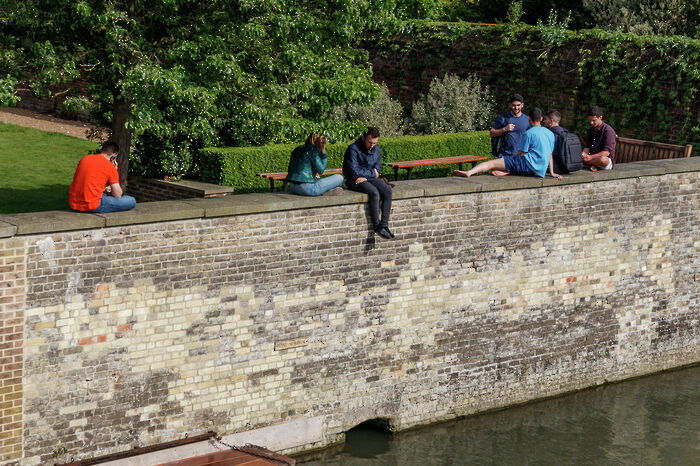University watchdog casts doubt on impact of Cambridge bursaries
Skeptical of bursaries as a means of improving access, the Office for Students has called on Cambridge to evaluate its access work

The Office for Students (OfS) has called on Cambridge to undergo a “robust evaluation” of its bursaries to prove that the current system tangibly improves access, saying that the University has “fallen short” in widening participation from underrepresented groups.
Cambridge, along with the University of Oxford, has been explicitly mandated to submit a report evaluating its existing financial support for students to the regulatory body in February of next year as a condition of its registration with the Office. The OfS has said that if the institutions are to continue to charge tuition fees of £9,250, they must also lay out an “access and participation plan” on how they will specifically improve opportunities for disadvantaged students.
The university watchdog expressed concern yesterday over whether the “high levels of spend” on bursary provision is adequately attracting students from low-income backgrounds, positing whether outreach programmes such as open days and summer schools might be more effective means of bolstering access.
In the 2016 admissions cycle, Oxford and Cambridge had the smallest intakes from regions with lowest participation in higher education of the Russell Group.
The main Cambridge Bursary Scheme currently provides an “annual gift” of up to £3,500 to all home students with household incomes under £42,620 per year, supplemented by certain college bursaries covering students’ living costs.
Shadab Ahmed, CUSU access & funding officer, agreed with the University that bursaries are a “vital component” of student support, expressing his hope that Cambridge might adopt more widening participation schemes which “include multiple sustained interactions rather than one-offs that are often ineffective.”
How can Cambridge tackle its access gap?
Write for Varsity and have your say. Just email our Opinion team with a 100-word pitch.
Varsity reported in April that Cambridge’s Senior Tutors Committee is seeking to integrate disparate college bursary provisions into the central scheme and to expand financial support for students in the “squeezed middle” – those left ineligible for the Cambridge Bursary but who struggle to pay living costs of between £8,300 and £8,800 per year.
Tackling the Oxbridge access gap has remained a perennial source of debate in the public discourse and is consistently pointed to as evidence of an enduring imbalance in educational opportunity in the UK. In October 2017, Labour MP David Lammy lambasted Oxford and Cambridge as “fiefdoms of entrenched privilege”. In the past ten years, more than one third of students accepted to Oxbridge hailed from the country’s top 100 schools.
Speaking to Varsity, a University of Cambridge spokesperson said, “The University is committed to widening participation and ensuring student success and provides a range of measures to support those in most financial need.
“We’re looking at innovative ways of ensuring the brightest students get to study here, regardless of their background. We look forward to establishing a constructive, and productive, dialogue with the Office for Students.”
The state of access
 News / Candidates clash over Chancellorship25 April 2025
News / Candidates clash over Chancellorship25 April 2025 Music / The pipes are calling: the life of a Cambridge Organ Scholar25 April 2025
Music / The pipes are calling: the life of a Cambridge Organ Scholar25 April 2025 Interviews / Dr Ally Louks on going viral for all the wrong reasons25 April 2025
Interviews / Dr Ally Louks on going viral for all the wrong reasons25 April 2025 News / Cambridge professor paid over $1 million for FBI intel since 199125 April 2025
News / Cambridge professor paid over $1 million for FBI intel since 199125 April 2025 Comment / Cambridge builds up the housing crisis25 April 2025
Comment / Cambridge builds up the housing crisis25 April 2025









